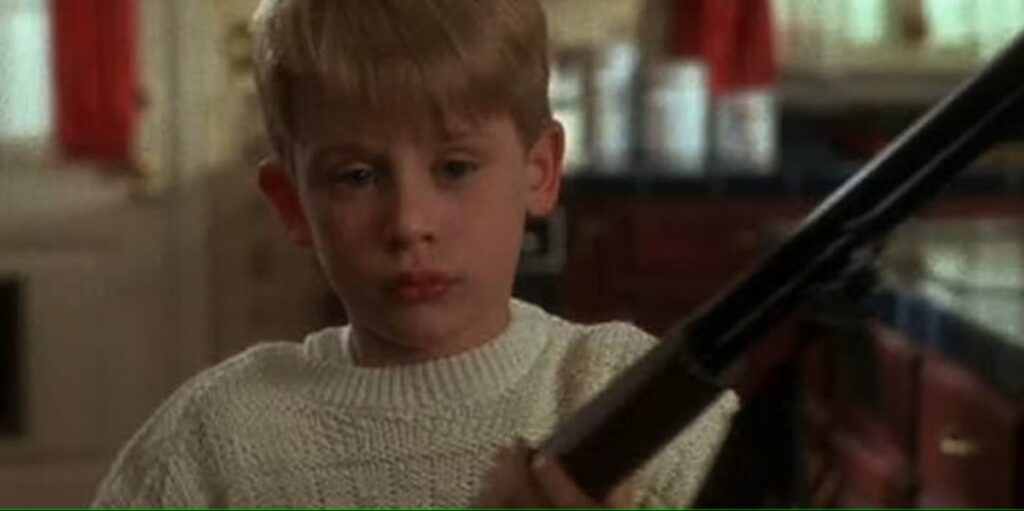
Today, I explain why it is a bad idea to try to apply real life mental health standards to fictional characters.
This is “Just a Reminder,” a feature where I just point out some stuff, typically in relation to a recent controversy in the world of pop culture.
Now, let me be up front here, when I talk about this, I’m talking from a well-learned experience, as I’ve done it myself, so I totally get the appeal of writing about how “Fictional character X is a sociopath/psychopath” or whatever (and, to be honest, obviously there are plenty of times when the TV shows or films specifically ADDRESS this specific topic, and that’s obviously a different thing. It isn’t unreasonable to debate Dexter Morgan or Hannibal Lector. Their mental health is the point of the story, and the writers are ASKING that discussion to take place).
No, what I mean is the kind of thing where someone takes a seemingly heroic or comedic figure and does one of those, “Well, actually, character X is a sociopath/psychopath.”
I once did a post like that about Cyclops, and a professor sent in an excellent rebuke of my article which I think was very spot on. He wrote, in part:
I don’t normally send out critical emails about misapplied scientific concepts in comics or comics criticism. Hell, I’d probably lose my job if I went down that road. This case is a little bit more sensitive though. Neurodivergent folks and people suffering from mental or neurological disorders often have to deal with stigmatization, armchair diagnoses, and superficial treatment as a fact of life. That’s kind of an obvious point, but I think it might indicate why casually dragging in something like the PCL-R might come across as flippant at best (and really hurtful at worst). I think that the topic is an interesting one, but I hope you might reconsider the approach.
He was absolutely correct. It IS overly flippant and it is just bad form. It is not clever or cute to be, all, “Oh, hey, character X in that comedy is actually a psychopath.” This is because comedic characters are almost inherently exaggerated (heck, most movie characters are). They do not live in a realistic setting, and thus applying real life settings to them is absurd and, again, way too flippant for something that is an actually important issue in real life. Kevin McCallister in Home Alone, for instance, is essentially a cipher of a character, he’s the basis for a plot hook, not someone that is well formed enough to be diagnosed like a real person.
That a fictional character can inspire people to think about their various personality traits and put those traits into the context of their own life or life, in general, is totally fine, of course, but when you go about diagnosing comedic characters with real life mental disorders, I think you’re going a step too far and almost assuredly are crossing a line past good fun (a lot of this is tied to my old post about contrarian takes in general, really).










While I agree with this, sometimes this is compounded, at least in the realm of comic books, by writers themselves inviting this stuff with some of their stories.
To cite your example with Cyclops, recent stories started painting him as a bad guy or antihero for years, to the point where he was once imprisoned, and rattling off pseudo mental health stuff. There was a recent issue of SCARLET WITCH where Wanda flat out calls her twin brother Pietro “a sociopath.”
Ages ago this stuff didn’t come up so often with comic book superheroes, but that was back when comics’ primary audiences were kids (or young teenagers). Now it’s adults, and one attempt for comics to “take everything seriously” is to have some of the writers themselves become armchair shrinks.
I may as well mention that I kind of hate how mainstream comic books are still stuck in the “asylum” model for mental health, which even the real world abandoned by the 1980’s. Arkham Asylum (TM) is a popular brand for Batman so that never goes away, even though it’s become a prison with little “therapy” because the villains have to keep escaping. Marvel’s not much better and pushed Ravencroft Asylum as a knockoff not long ago. Aside for Doc Samson, Ashley Kafka or DC’s Chase Meridian (dusted off and adapted from “BATMAN FOREVER” some 25 years later), there are really few therapist characters in comics who aren’t villains. It’s often a joke how many super-criminals in Gotham City have PhD’s. Nick Spencer did a baby step in the right direction during his ASM run by having Foggy Nelson organize a focus group for the civilian friends and lovers of superheroes, but I think there’s more room to grow. So many superheroes rely on their (usually female) lovers to be their de facto therapists and that’s an unhealthy example that too many dudes emulate. But I digress.